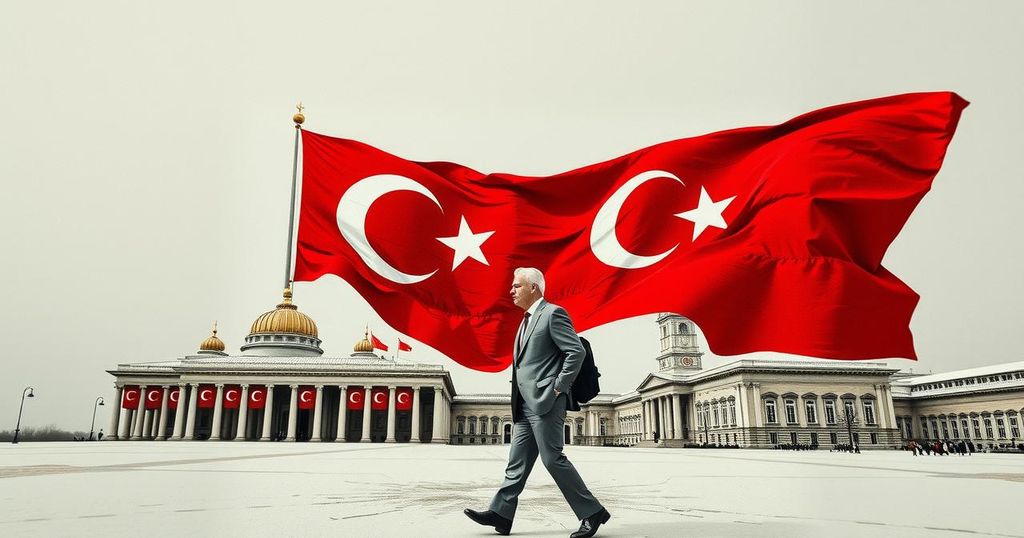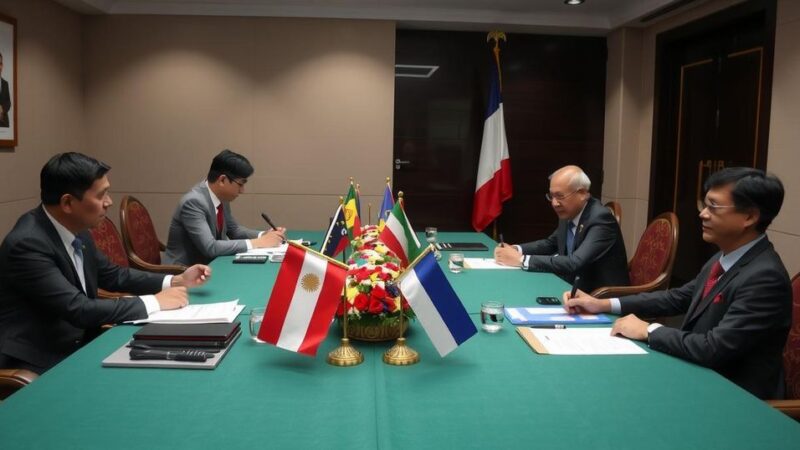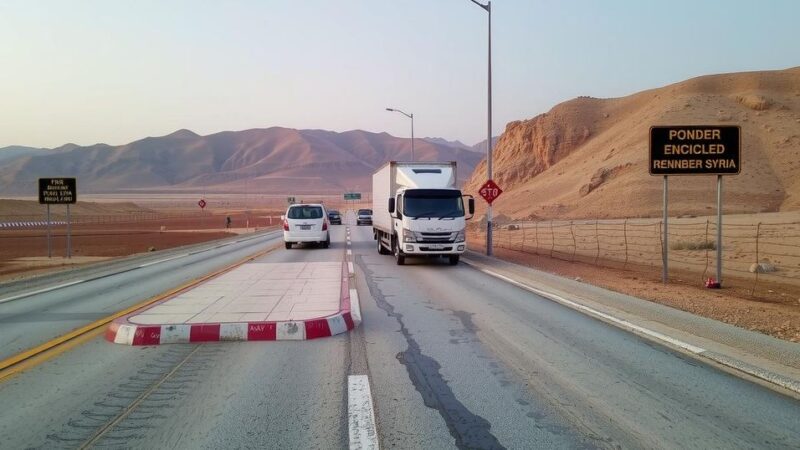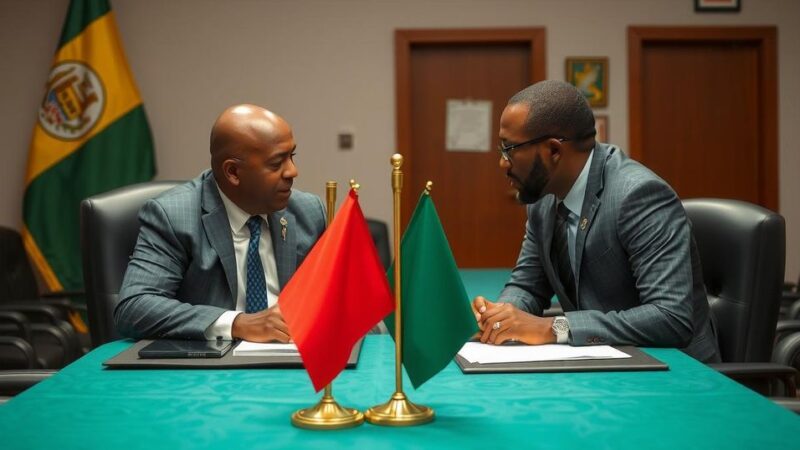Türkiye has successfully executed the Ankara Process, reinforcing its commitment to a win-win policy in Africa by mitigating tensions between Somalia and Ethiopia, preventing potential war. Facilitated by Türkiye’s diplomatic intervention, critical dialogue was initiated, culminating in the Ankara Declaration that underscored respect for sovereignty and adherence to international law. This initiative not only stabilized the Horn of Africa but also enhanced Türkiye’s diplomatic standing and economic prospects within the region.
Türkiye has enhanced its nearly two-decade commitment to a win-win foreign policy in Africa through the successful execution of the Ankara Process. This initiative has contributed significantly to maintaining peace, security, and development across the continent, particularly in mitigating the crisis between Somalia and Ethiopia, which could have escalated into a regional conflict. Türkiye’s involvement was instrumental in facilitating dialogue and averting war during a critical period that otherwise posed a significant threat to stability not just in the Horn of Africa, but on a global scale. By fostering an environment conducive to consensus, Türkiye, under the leadership of President Recep Tayyip Erdoğan, proved itself as a reliable mediator, promoting regional cooperation during tense negotiations.
The escalation in tensions began on January 1, 2024, following the signing of a memorandum of understanding (MoU) by Ethiopian Prime Minister Abiy Ahmed with Somaliland’s prior administration. This agreement directly jeopardized Somalia’s sovereignty and territorial integrity, prompting fears of imminent armed conflict. However, Türkiye’s diplomatic intervention facilitated crucial communication between the involved parties, enabling a peaceful resolution. Recognizing the devastating consequences of war, Türkiye embraced its foundational principle, “Peace at Home, Peace in the World,” showcasing its commitment to resolving the crisis amicably.
The Ankara Process emerged as a pivotal diplomatic effort, allowing the parties to catalyze dialogue and overcome the potential for war. This approach also underscored the historical grievances rooted in colonialism and regional insecurity, necessitating a dedicated regional actor to foster cooperative efforts. Türkiye adeptly occupied this role, initiating an extensive diplomatic dialogue which laid the groundwork for a mutually beneficial agreement designed to uphold peace and security while recognizing Somalia’s sovereignty.
The signing of the Ankara Declaration marked a transformative moment for peace and stability in the Horn of Africa. This milestone emphasized the significance of adhering to international law and the principles outlined in the United Nations Charter and the Constitutive Act of the African Union, thereby consolidating Türkiye’s standing as a legitimate global player. Additionally, the process garnered praise from the international community, acknowledging Türkiye’s effectiveness in addressing regional threats such as terrorism while paving the way for economic opportunities by reassuring investors about stability in the region.
More importantly, the Declaration asserted Ethiopia’s rights to commercial access to the Red Sea under the authority of the Somali Federal Government, aligning the agreement with international protocols. This arrangement not only safeguarded Ethiopia’s economic interests but also assured Somalia’s sovereignty, alleviating concerns associated with potential military conflict. Such cooperative arrangements, complemented by Türkiye’s resounding success in diplomatic mediation, hold the promise of fostering long-term regional integration based on shared developmental goals.
As Türkiye’s win-win policy in Africa continues to yield fruitful results, it has established itself as a trusted partner and mediator in contrast to other global powers vying for influence. The ongoing interest from nations such as France, amidst a shifting geopolitical landscape, underscores the relevance of Türkiye’s initiatives in the Horn of Africa. The growing recognition of Türkiye’s contributions exemplifies a positive shift in regional dynamics, appealing to other international actors eager to learn from this diplomatic success.
The significance of Türkiye’s role in promoting stability cannot be overstated, especially considering the complexities of regional threats and the potential for conflict. In the wake of the Ankara Declaration, fresh initiatives, such as Türkiye’s involvement in potential peace discussions between Sudan and the UAE, highlight the continuation of its diplomatic efforts in fostering relationships grounded in mutual benefit. Ultimately, the Ankara Process signifies a pivotal achievement in Türkiye’s foreign policy, reinforcing its influence while contributing to a conducive environment for peace and sustainable growth in Africa.
The Ankara Process represents a strategic diplomatic initiative led by Türkiye to manage and resolve escalating tensions and conflicts in the Horn of Africa, particularly between Somalia and Ethiopia. Spanning nearly two decades, Türkiye’s win-win foreign policy has established the nation as a pivotal player in African affairs, proving influential in fostering peace, security, and economic development. This context is critical in understanding Türkiye’s effective interventions, which have often centered on recognizing and respecting the sovereignty and territorial integrity of regional states while promoting cooperative relations across the continent. The process illustrates Türkiye’s commitment to diplomatic solutions in contrast to reliance on military action, fostering an environment of dialogue and negotiation instead.
The success of the Ankara Process exemplifies Türkiye’s effective foreign policy approach centered on peace and regional stability. Through this initiative, Türkiye has established itself as a key mediator capable of addressing complex geopolitical tensions while promoting economic development and respect for national identities. The successful resolution between Somalia and Ethiopia, backed by the Ankara Declaration, highlights the potential for future diplomatic efforts in the region. Continued engagement by Türkiye in Africa reinforces its role as a trusted partner committed to long-term stability and collaboration amongst nations, ultimately benefiting the global community. As the region navigates evolving dynamics, Türkiye’s policies are likely to enhance its influence while fostering shared development goals and cooperative relations across Africa.
Original Source: www.dailysabah.com






